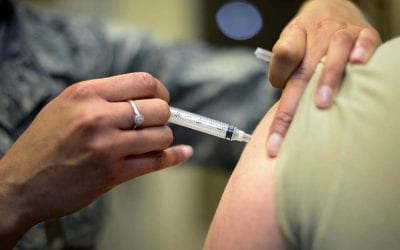
Last week, Judge, M. Christina Armijo, of the US District Court for New Mexico ruled that neither the Airline Deregulation Act nor the Federal Aviation Act can preempt state liquor control laws. Under Judge Armijo’s ruling, New Mexico ordered US Airways to not serve alcoholic beverages on flights while its aircraft are over New Mexico, or while grounded in the state.
Last week, I wrote about the need for a Federal Dram Shop law to stop the serving of alcoholic beverages by the airlines to visibly intoxicated passengers, for safety’s sake. In effect, Judge Armijo’s ruling allows any state to impose its Dram Shop laws on airlines in, or flying over their state.
I question whether or not Judge Armijo’s ruling is the basis of good public policy.
What are the implications of this ruling?
While I fully understand New Mexico has serious safety concerns about US Airways’ alcoholic beverage procedures and policies, I doubt that the fact this decision could create a financial windfall for New Mexico has been lost on their governor or legislature. This ruling appears to open the door to a regulation and bookkeeping nightmare for all the airlines.
By asserting its authority over US Airways, New Mexico is obliged to assert their alcoholic beverage regulations and taxation laws uniformly over all the airlines, and you can “bet your sweet bippy” that the other 49 states are going to jump on the bandwagon.
What might the airlines have to do to comply with New Mexico’s and other states’ alcohol beverage laws:
• New Mexico has apparently indicated a willingness to permit airlines to each operate under a single unified liquor license, but other states might not be so inclined. Usually, each individual restaurant or bar must obtain a separate license. I think it’s fair to extrapolate that some states may require each individual airplane which enters their state’s airspace to have a separate liquor license. US Airways currently has 357 airplanes in service. If we assume each plane might fly over a fourth of the states, they might be required to obtain more than 4,400 state liquor licenses.
• The airlines would have to create detailed records of what beverages were sold or comped while in and over each state for licensing and tax purposes. Every plane would have its own records.
• State liquor and sales taxes would have to be paid. Questions of where the liquor is purchased and then dispensed come to mind. Could that mean if the plane is flying over Pennsylvania the liquor purchased in North Carolina couldn’t be served then?
• The airlines and their personnel would have to follow the diverse training and job requirements of each state’s airspace into which they would fly. Will each flight attendant have to receive certification from every state they might fly over at some point in their career?
This could quickly become a 50-state nightmare of regulations, taxes and fees for the airlines. I’m on record for tough alcoholic regulations for the airlines, but even I think its absurd to permit the states to regulate the serving of alcoholic beverages on airplanes.
Last year in New York, the US Court of Appeals for the 2nd Circuit struck down New York’s “Passenger Bill of Rights.” The court stated that the Airline Deregulation Act controls airlines with regard to matters of “price, route, or service.” The court struck down the New York law because they reasoned it regulated a service, namely refreshments to passengers, which only the FAA may regulate. It would appear that ruling directly contradicts Judge Armijo’s.
I note the FAA already has on its books Federal Aviation Regulation Section 121.575, which governs alcoholic beverages. It says in part,
(b) No certificate holder may serve any alcoholic beverage to any person aboard any of its aircraft who —
(1) Appears to be intoxicated;
The problem with this regulation is it has no real teeth and no defined penalties. It doesn’t specifically assign liability, civil or criminal, to the airlines and/or the airline crews, if they violate the regulation. It’s not a “real” Dram Shop law.
I think that Judge Armijo’s ruling last week sets into motion bad public policy. I agree with the ATA that, “a patchwork of laws by states and localities would be impractical and harmful to consumer interests.” I also believe that current FAA Regulation, Section 121.575 is totally inadequate. Every day visibly drunk airline passengers are being served over and over again with alcoholic beverages, endangering other passengers and the aircraft in the air, and often after landing, people on the ground, with no adverse consequences to the airlines.
I again call on Congress and the FAA to create a Federal Dram Shop law for the airlines, with real teeth, to halt their dangerous practice of serving alcoholic beverages to already drunk passengers.
After many years working in corporate America as a chemical engineer, executive and eventually CFO of a multinational manufacturer, Ned founded a tech consulting company and later restarted NSL Photography, his photography business. Before entering the corporate world, Ned worked as a Public Health Engineer for the Philadelphia Department of Public Health. As a well known corporate, travel and wildlife photographer, Ned travels the world writing about travel and photography, as well as running photography workshops, seminars and photowalks. Visit Ned’s Photography Blog and Galleries.

